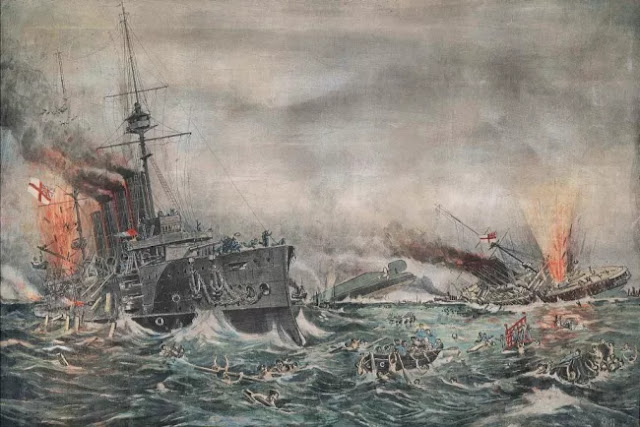Meet Your Coastguards: Hornsea CRT
With a Victorian promenade, sandy beach, and tea rooms, Hornsea is an historic town in East Riding of Yorkshire.
In 1864, the town was expanded with the opening of the Hull and Hornsea Railway, and during the First World War, the town was home to a Royal Naval Air Service seaplane base.
Hornsea’s 11-strong Coastguard Rescue Team covers the immediate Hornsea area, as well as providing support to flank teams at Bridlington, Withernsea and Hull. The team’s service experience ranges from under one year to more than 45.
Here we speak to Hornsea Station Officer Jonathon and Coastguard Rescue Officer Tim.
Why did you join HM Coastguard?
Being interested in maritime and with aspirations for a career in the Royal Navy, Jonathon thought that working with HM Coastguard would be a good fit. And 45 years on, he’s still volunteering at Hornsea where he’s a Station Officer.
“I was encouraged to join by my dad, who was then the Volunteer in Charge of the Rescue Company at Hornsea,” says Jonathon. “This was in 1979, when Hornsea had a General Purpose Boat, which was a big attraction for me.”
Tim hadn’t realised that Coastguard Rescue Officers (CROs) were volunteers until he was rescued by Coastguards at Bridlington beach following a paragliding accident. When Hornsea put out a call for willing volunteers, he signed up!

What is the most unusual incident you have attended?
“Probably the most unusual or interesting has been working alongside the Air Accident Investigation Branch or the folks from Explosive Ordnance Disposal (EOD),” says Tim.
Jonathon adds: “Years ago, the team was called out to a report of a young heifer that’d gone over the cliff at a place south of Hornsea called, wait for it, Cowden. Turns out the beast had fallen from the cliff top onto a wide ledge a couple of metres below.”
What is the most unusual place you’ve been when your pager has gone off?
“Probably while paragliding over the Yorkshire Cliffs,” says Tim. “I landed and rejoined the team to carry out the job! Very James Bond I know, but it so happened my kit was in my car at the same location as the incident.”
Jonathon was on holiday in Greece when he was alerted to an incident, as he’d forgotten to update the Alert & Tasking system. “I think I’d have struggled to make the 20-minute response time!” he jokes.
What is the most challenging part of your role?
“Without doubt, it’s climbing out of bed in the early hours after a couple of hours sleep to lead the team in response to an incident, the full extent of which may not become apparent until you arrive on scene. It’s often in the foulest of foul weather,” says Jonathon.
Tim’s more wary of the unknown nature of incidents and conditions – day or night. As he says, “It can be challenging, but it’s what makes being a CRO all the more worth it.”
Which local beach is your favourite and why?
Jonathon favours the north end of Hornsea, with memories of spending school summer holidays there as a boy. “We were often huddled behind a windbreak, frequently braving the cold North Sea to swim, surf or catch shrimps,” he recalls.
As a keen paraglider, Tim’s view is a little more unique: “It’s really any cliff or beach that I can fly from, to be honest! I do love the Yorkshire coast, particularly Bridlington, where I fly past Humber and give them a wave!”

What do you enjoy most about being a member of the team?
“I think that it’s being among a group of like-minded individuals coming together with a common purpose to help people in difficulty on the coast,” says Jonathon.
Tim adds that through the coastguard, he’s been lucky to have worked with “so many fabulous, likeminded people of all ages and backgrounds, all focused with a selfless attitude to provide search and rescue regardless of time, challenge, day or situation”.
What new skills have you learned as a CRO?
Jonathon and Tim recognise the technical skills that come with joining the coastguard. Throughout Jonathon’s longstanding emergency service work, he points to a range of skills learned, from Officer-in-Charge (OIC) to Rope Technician, Search Team Leader, Casualty Care and Water Safety and Rescue (WSAR).
He adds that life skills gathered during his career in the police have often complemented and enhanced his technical skills with the coastguard.
Tim says: “My previous background lends itself to coastguard competencies. I’m a not-so-young 50-year-old, but I enjoy the challenge of expanding knowledge. I’ve been applying my background as a CI (Continuous Improvement) coach to help the team develop ways of working based on innovation and development.”
When you’re not working or volunteering as a CRO, what do you enjoy doing?
“Family life is very important to me,” says Jonathon. “We have a camper van, which allows us to travel and explore. Fresh air and exercise make me happy, especially when enjoyed walking for miles off the beaten track in the North Yorkshire Moors area.
“I’m very much an outdoors kind of guy all aspect of land, sea and obviously air,” says Tim. “Canoeing sailing, climbing, and did I mention paragliding or paramotoring?”
What do you do for a living?
Jonathon is currently an officer with Border Force, having served 30 years in the police followed by a short stint as a seafarer. Tim’s professional background is in telecoms.



